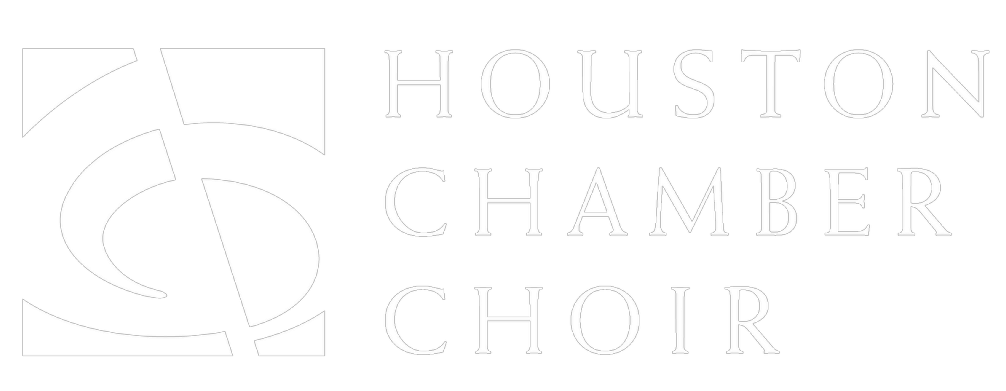Circlesong
Bob Chilcott
A work filled with ambition, Circlesong is a musical portrayal of the human life cycle as captured in the indigenous poetry of North America. Composed by Bob Chilcott and based on poetry from the Chinook, Comanche, Dakota, Inuit, Iroquois, Kwakiutl, Navajo, Ojibwa, Pueblo, Seminole, Sioux, and Yaqui traditions, the thirteen movements, in seven parts, mark the different stages of life, from birth and childhood to adulthood, middle age and death. With dynamic piano and percussion accompaniment, climactic moments for tutti choir, tender unaccompanied passages and solo song, Circlesong is a work of impressive drama, variety, and depth, performed by the Houston Chamber Choir under Robert Simpson and the Treble Choir of Houston led by Marianna Parnas-Simpson.
DURUFLÉ:
COMPLETE CHORAL WORKS
62ND ANNUAL GRAMMY® WINNER - BEST CHORAL PERFORMANCE
In a new recording produced by Grammy®-winning producer Blanton Alspaugh, the Houston Chamber Choir are led by artistic director Robert Simpson on their first release with Signum Records.
BEHOLD THE STAR!
CHRISTMAS AT THE VILLA
Houston Chamber Choir’s Christmas at the Villa concerts have become a Houston holiday tradition — one that is so popular, it has been expanded to five concerts in one weekend! Behold the Star! features favorites from past performances at the Villa. This compilation of live recordings will make the perfect stocking stuffer and is sure to become a favorite you will listen to all year round.
ROTHKO CHAPEL:
MORTON FELDMAN, ERIK SATIE, JOHN CAGE
Released in October of 2015, the Houston Chamber Choir's latest recording has taken the classical music world by storm. Entitled Rothko Chapel: Morton Feldman, Erik Satie, John Cage, the album is a collaborative effort with Grammy-Award winning artist Kim Kashkashian, Da Camera of Houston with Artistic Director Sarah Rothenberg, percussionist Steven Schick, and the Houston Chamber Choir conducted by Robert Simpson. The album was produced by Grammy-Award winner Judith Sherman, and was released on the legendary ECM label.
The recording has received stellar international reviews from AllMusic.com (an "editor's choice" pick), The Chicago Tribune (one of The "Best Classical Recordings of 2015"), The Guardian (five out of five stars), The Independent (five out of five stars), All About Jazz and others. It also received 4 stars from Financial Times, London. They state, “Kim Kashkashian, Sarah Rothenberg, Steven Schick, and The Houston Chamber Choir conducted by Robert Simpson hold stillness in their hands.”
SOFT BLINK OF AMBER LIGHT
Soft Blink of Amber Light is the Houston Chamber Choir’s third commercial release on the MSR Classics label, and presents performances of commissions and premieres by some of the nation’s leading composers: Christopher Theofanidis, David Ashley White, Jocelyn Hagen, Dominick DiOrio, and Wayne Oquin.
The album’s title work soft blink of amber light, by Minnesota composer Jocelyn Hagen, is an introspective and colorful meditation on poetry by Julia Klatt Singer, written for choir and a small instrumental ensemble of flute, clarinet, piano, and marimba. Other works on the recording include Christopher Theofanidis’ Messages to Myself, a dynamic collection of a cappella settings of poetry by Whitman, Rūmī, Kirsten, and Yeats; David Ashley White’s The Blue Estuaries, a collection of expressive settings of poetry by Louise Bogan; and Wayne Oquin’s setting of O Magnum Mysterium. The album closes with Dominick DiOrio’s virtuosic work for choir and marimba A Dome of Many-coloured Glass. Written as a cantata-concerto, DiOrio’s work sets to music poetry by Amy Lowell.
Click here to listen to a 'Houston Matters' broadcast on KUHF 88.7 from October 22nd, 2015 discussing Soft Blink of Amber Light with Houston Chamber Choir Founder and Artistic Director, Robert Simpson.
RAVISHINGLY RUSSIAN
The Houston Chamber Choir, under the direction of Robert Simpson, has produced an album that showcases the little-known area of Russian secular choral music. That the secular choral music of Russia receives less attention from performers than its sacred counterpart can be explained by the fact that sacred titles outnumber the secular by a ratio of approximately 80 to 20. Yet many of the composers who are best known for their sacred choral works, e.g. Tchaikovsky, Rachmaninoff, Kalinnikov, and others, wrote lovely secular part-songs as well, as this album demonstrates. Others, such as Arensky, Cui, Dargomyzhsky, and Taneyev, are known primarily for their secular choruses, which deserve a great deal more attention than they've received to this time. Finally, the album taps the unexplored wealth of Soviet-era choral songs (represented by Salmanov, Falik, and Gavrilin), written during a time when sacred music was severely suppressed.






